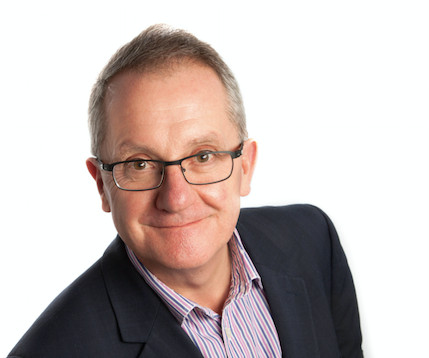
February 5, 2018, by Emma Rayner
Tinnitus research pioneer wins prestigious prize
Professor in Hearing Sciences, David Baguley, has been awarded the prestigious Royal Society of Medicine Section of Otology Norman Gamble Prize. In this blog, David explains why he felt driven to specialise in tinnitus and offers his thoughts on why this hearing problem deserves increased recognition in the future.
“When I started working in Audiology, in 1985, it was a very underfunded and poorly regarded discipline. Hearing aids were of poor quality, pinpointing the cause of hearing loss was often difficult, and counselling techniques were only just emerging. Despite these issues, of which many in the field were aware, I was (and remain) proud to be an Audiologist. In fact, I compounded the challenges I faced by choosing the area of Audiology that was the least well developed – that of tinnitus (though balance ran it a close second!). Services for people with troublesome tinnitus (hearing sounds when none is present externally) were sparsely available, restricted to adults, and dependent upon there being a particular clinician with an interest in the topic – and these were few in number.
 Quite why I chose tinnitus (and in the last 15 years, hyperacusis) as a major focus for clinical and research work has been largely obscured by time. I recall being fascinated by the problem: the paradox that the experience of an internally generated sound perception could lead to so many, and such deep problems: a ‘profound sadness’ as J.M. Itard (1774 – 1838), an early Otologist, described it. I never regretted it though, and patients and fellow clinicians taught me so much about compassion, kindness, and the urgent need for better interventions, and improved outcomes, for people with tinnitus (adults and children alike) and for their families.
Quite why I chose tinnitus (and in the last 15 years, hyperacusis) as a major focus for clinical and research work has been largely obscured by time. I recall being fascinated by the problem: the paradox that the experience of an internally generated sound perception could lead to so many, and such deep problems: a ‘profound sadness’ as J.M. Itard (1774 – 1838), an early Otologist, described it. I never regretted it though, and patients and fellow clinicians taught me so much about compassion, kindness, and the urgent need for better interventions, and improved outcomes, for people with tinnitus (adults and children alike) and for their families.
Perhaps this explains why it is so encouraging for my work to have been honoured with the Royal Society of Medicine Section of Otology Norman Gamble Research Prize. This prestigious award is ‘awarded to the best original work in Otology in the last four years, as evidenced by published papers’. My work in that timeframe has explored the experience of tinnitus in childhood, opportunities for tinnitus therapy to be delivered via the internet, and has also sought for multidisciplinary research in hearing, involving not only Audiology and Otology, but also Psychology and Neurology in partnership. That research in this field, on these topics, should receive recognition is very heartening.
The timing of the award is also fitting as it coincides with Tinnitus Week 2018. Led by the British Tinnitus Association (www.tinnitus.org.uk), of which I am the current President, Tinnitus Week has become an international event, involving patients, clinicians, and researchers around the world, with common cause to remove the burden of tinnitus. Moreover, it is apt that the theme of Tinnitus Week 2018 is tinnitus in childhood: a longstanding concern of mine and a topic of my recent research.
I would hope that the Prize award would be an encouragement to Audiologists and Otologists to follow their heart: to try and address clinical and research questions to benefit their patients no matter how difficult or complex those issues seem to be. Maybe, as in the case of tinnitus, that will bear unexpected fruit though I and now many others hope the best is yet to come.”
Professor David Baguley
No comments yet, fill out a comment to be the first

Leave a Reply